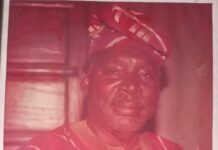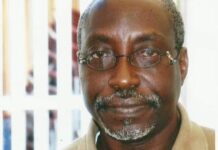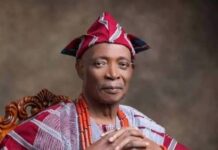As the COVID-19 pandemic tighten its grip on the world, economies have continued to experience varying degrees of plunge, the artificial halt employed by countries to stem the tide of the deadly virus, which has now claimed about 700 thousand lives may have permanently changed our idea of global travels.
The world is now literally a village, airline businesses was thriving, most international airports is a beehive of fliers hopping between countries for business, pleasure, religious and even medical pilgrimage.
Restrictions on both international and domestic travels has brought the world to its
knees.
Most airports have remained desolate since the beginning of 2020.
Simply said, the world is on PAUSE.
The pandemic is new, hence, the chaotic scramble to find a cure, the only known suppressant according to experts is regular hand washing, social distancing and mask wearing when it is impossible to socially distance.
Also, only essential travels are encouraged.
While the medical institutions are on a race to find vaccines that works, other research institutes have swung into action to gather data, to prepare the world for the overall consequences of this pandemic.
The Brookings Institution, Washington DC is one of the bodies that has started to sound warnings that the global number of extremely poor (people who live under $1.90 a day) will surge by100 million this year.
According to its recent report, advanced economies are expected to shrink by 7 percent while developing economies on the other hand will shrink by 2.5 percent.
For developing economies like Nigeria, this pandemic is a perfect storm to derail whatever achievements that might have been recorded in recent times.
The vulnerabilities of the Nigerian economy are being magnified by pre-existing conditions which includes weak healthcare system, plunging export revenues, insecurity, unemployment, and corruption, among others.
The report also emphasize that the poverty impact of COVID-19 will be largest in South Asia and Sub Saharan Africa.
In these regions, the record decline in per-capital incomes are projected to push over 80 million people into extreme poverty.
With a future this grim in our horizon, one would assume the Nigerian government will put the wellbeing of the masses at the top of their to do list but again the average person is being left out dry to hang.
Many developed nations swiftly swung into actions to ease the burden of COVID-19 as unemployment spikes.
Countries like France, Germany, UK, and the US passed laws that caters to their citizens.
As congresses of developed nations jostle to win the contest of which political party catered the most to the people, the Nigerian legislators are engaging in a dance of shame on who is looting the most.
The fact that the country is not experiencing Covid-19 as bad as some other countries should be an advantage, used to plan on
how to effectively manage our limited resources as the country gradually eases lock-down.
But no, this is the time the Nigerian Congress has chosen to tackle the age long corruption in the Niger Delta Development Commission NDDC.
Has anyone stopped to ask what these lawmakers will be doing other than this disgraceful expose of the NDDC?
For starter, the whole country will be occupied with learning about their detailed plans for both intended and unintended consequences of the pandemic.
Questions like how does government intend to tackle unemployment, Insecurity, dead healthcare sector and support for small and medium scale businesses will continuously plague these honorable men.
The media would continuously ask, how many Nigerians truly received help from the N20,000 ($52) palliative money announced by the federal government.
But instead of being able to ask all these important questions they have successfully distracted the whole country to be amazed at how much revenue is being squandered by a certain group of elites.
Like this is anything grander than earlier
discoveries of massive corruption.
And if I may also add, exactly what came out of all the earlier deceitful adventure they had taken the country?
As a Nigerian resident in America, I am tempted to compare the bi-partisan passage of over 2 trillion economic relief package tagged Corona-virus Aids, Relief and Economic Security (CARES) Act, by the US congress to how Nigeria is responding to the same pandemic, but then I reminded myself of the “how can you even try to compare Nigeria to America”? response that’ll greet this write up by lots of people.
America’s CARES Act was framed to supply fast and direct economic aid for American workers and families, support small businesses, expand unemployment benefits, and supply federal aid to hospitals and healthcare providers among other things
For the giant of Africa however, it is now clearer, that the country needs an urgent reset like a computer that no longer responds to commands.
It is a tsunami of problems being met by the most populous
nation in Africa.
Plummeting prices of crude oil has been driving the nation in and out of recession since 2016.
Before COVID-19 started to sting deep, Nigeria was already in a mess with crude oil, the major means of national revenue being priced at below $16 as against over a $100 the country usually based her budget on.
So the pandemic is like what the Yoruba’s will
describe as “ B’iyanla ba gbeni sanle kekere amaborieni” (meaning, when you are afflicted by a big trouble, smaller troubles will fest on your wounds), only this time around, all the
troubles are HUGE!
So, while other nations were swiftly appropriating funds for relief programs, Nigeria was pleading with the private sector and citizens to donate, so government could have something to work with.
The International Monetary Fund, IMF approved a $3.4 billion emergency support while the European Union contributed 50 million Euros.
Both private sector and individuals raised over $70 million for a nation in need.
Bearing in mind the national disorganization that has permeated every strand of the Nigerian fabric, questions like how would the average Olu, Chineye, Udom, Osaretin or Musa
get to receive help from this palliative program started to pop up.
Then the Federal Government announced that it would transfer N20,000 ($52) to every eligible Nigerian already on the National Social Register, NSR Data.
A registry of about 3 million Nigerian households which comes to about 11 million people out of a population of 200 million.
What was the criteria used to determine eligibility?
These are questions that have remained unanswered.
But where is the avenue to ask these questions when the National Assembly is daily sucking out national energy for mischief.
So as I was debating within myself on how not to make this write up about comparison on who is more compassionate towards the masses between the US and Nigeria, I stumbled on
CNN’s @StephBusari reports on how Rwanda is one of the countries handling the pandemic better.
Her report on the virus in Nigeria is mostly about who is being afflicted.
According to her report, despite Rwanda’s limited resources, the country has effectively managed the pandemic due to the rehabilitation of health sector which began a decade ago.
Hand washing stations are a common fixture in public places.
Rwanda employed healthcare workers to randomly ask people if they will like to take a Covid-19 test and anyone found positive is isolated on the bills of the government compared to Lagos state advice to Lagosian to find private clinics to take the test for N50,000.
It is laughable that the Lagos state government expected people already living on the border line of poverty will produce more than a $100 to take a test.
Rwanda on the other hand is already making use of drones to get medical products to areas.
Robots provided by UNDP is also being used in Rwanda to take temperature of patients to encourage social distancing.
Even though Rwanda has a population of 12.5 million, among whom about 1700 tested positive to the virus and has recorded only five deaths so far, without good leadership and working healthcare system, the country may have half of her population affected by the pandemic.
However, @StephBusari’s Covid-19 report on the pandemic in Nigeria is based on which of the country’s political elite has come down with the virus with a mention on limited access to
testing.
There lies Nigeria’s problem, it is never about the masses but about few politicians who have continued to snuff life out of a nation that was once rich and upwardly mobile.
So, before you lose your mind on the misappropriated N81 Billion by NDDC, ask yourself what the National Assembly is
hiding.
We will get back to NDDC but before then we need hospitals, we need to be able to take Covid-19 test without breaking a bank, so we can go back to work.
We need to be able to earn a living wage.
If the corruption of NDDC is too much to place on hold, send all the culprits to jail.
We will get back to them after we beat COVID-19, until then dear Honorable Members, kindly cater to the needs of your employers, the masses of Nigeria.
Abimbola Animasaun-Yagboyaju hosts CrystalviewNigeria Podcast & former Reporter @ Radio Nigeria.






